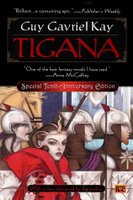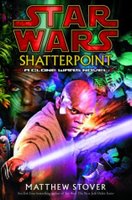Perspectives from the Spec Fic Barricades

I was going through an old discussion thread on one of my favorite books, Guy Gavriel Kay's Tigana and it got me thinking about something that's in the news lately, i.e. what's the difference between a freedom fighter and a terrorist? Is there one?
I'm sure there's no easy answer to this question. As one Austin Powers movie astutely pointed out, any bad guy will always have family and friends waiting for them to come home. On the other hand, someone in the said discussion pointed out that the characters in GGK's book were cold-blooded in sacrificing home and hearth in order to fight for "nebulous things" like freedom and statehood.
Granted that such concepts may seem important for you now-- but when it does happen, would your loved ones agree when they find themselves dying due to your actions? Would you still feel the same when it's your own betrayal and death you're facing?
Thanks to my own country's history of being conquered before by other nations, I found myself reading Laura Resnick's In Legend Born, which dealt with a kingdom's efforts to throw off the yoke of its imperialist conquerors. Though it was marred by bad pacing, I thought Resnick's depiction of a people suborned by their neighbors and finding ways to fight back using their inherent sorcery and secret martial arts (like our very own arnis or eskrima) as pretty realistic.
Moreover, Resnick's own protagonists were faced with the question of how bloody would (and should) they go in winning their freedom. Is it right to torture the enemy soldiers? Or to slay civilians despite the fact that they're part of the conquering force? How degraded should one be in order to get your message across?
On the other hand, Steven Erikson's Deadhouse Gates dealt with the other side of the coin. In this book, the Empire of Malaz is faced with rebellion by its tributary nations. As the imperial forces withdraw from these counties, the Malazan people living there are faced with fleeing through hostile territory, arid deserts, and tribes out for their blood. Despite the fact that they were the conqueror firsts, one can't help but root for the Malazan as their soldiers make each sacrifice count in order to get their beleaguered people home safely.
Last but not least, in a homage to Joseph Conrad's Heart of Darkness and Francis Ford Coppola's Apocalypse Now (and despite its Star Wars tag), Matthew Stover's Shatterpoint posited about the consequence when peacekeepers are forced to make war (i.e. they lose) and how guerilla low-level intensity conflicts sometimes becomes genocidal in scope. Very dark, very depressing and very good in making one think. If you would have to kill everyone in order to win the war, would you do it?

So what's my point? I don't have one, really. Like I said, questions like these have no easy answers. However, a conversation one night with a Marxist friend of mine made me circumspect about making absolute proposals. In our talk, he posited the idea that what the Philippines needs is a revolution akin to the United States or France. Playing devil's advocate, I asked him if he was willing to have the blood of thousands on his hands. He answered: if it's for the good of the country, he would.
Myself, I'm not so sure. Who knows what we would do when faced with such darkness.
6 comments:
i often have these conversations with my friends. me, i'm all for allowing the human race to follow the path of entropy.
i'm frequently blown-away by the way some people can be utterly fanatical about their beliefs, blown-away and baffled, as i myself find it hard to consciously believe in things.
but everything has a caveat, and hardline positions, while i see their necessity, always leave me cold, whichever way they blow, whether far right or far left.
at those extremes, either side is indistinguishable from the other.
re: Tigana. that book, i feel, pulled me out of typical fantasy, with its insistence on easy, defineable and seperable concepts of 'good' and 'evil' for good.
Hehe kwentong pang-inuman? I also believe in the same, figuring that the political line is actually a circle with nothing distinguishable between extreme leftists and rightists. Of course I also have an almost fanatical hatred of fanatics. Thank goodness for that built-in cynicism.
re Tigana: was 'evil' and 'good' that defineable? I thought it was the other way around given GGK's sympathetic portraiture of even the 'bad' guys in the story.
haha, no, i meant that Tigana was what gave me a taste for 'ambiguous' morality in fantasy being, the book itself being rather ambiguous on that count. i.e., i loved Tigana, too.
just realized where your confusion came from:
re: Tigana. that book, i feel, pulled me out of typical fantasy, with its insistence on easy, defineable and seperable concepts of 'good' and 'evil' for good.
where "its insistence" refers to "typical fantasy" and not Tigana. sorry for that bit of guffy writing.
check this out:
www.theonion.com/content/node/51849
i love The Onion for their insight. and they always manage to put a cheeky smile on my face.
Ah, that's clear. ;-)
As for The Onion, heh. Though that reminds me of how I can never watch Jon Stewart's The Daily Show with my brain running on neutral. I really have too focus on the TV in order to enjoy it. Which goes to show how so many TV shows are a bit brain-dead.
Post a Comment